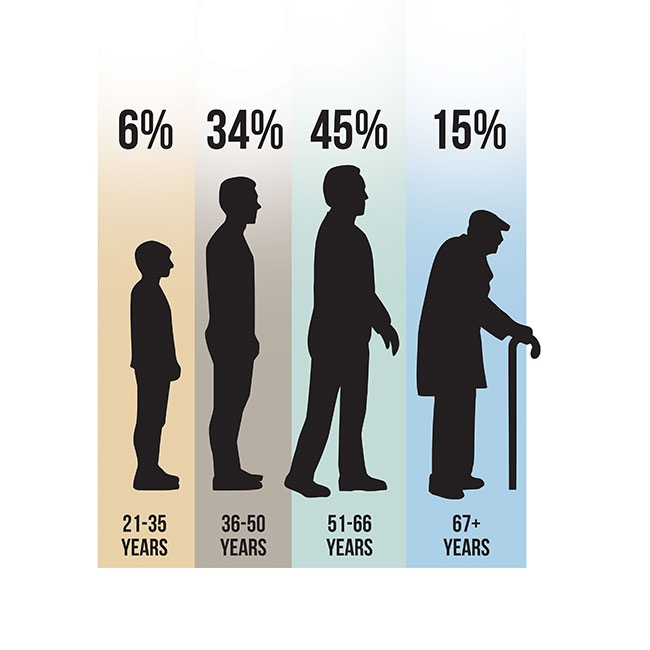
Survey: Aquaculture Extension workforce is aging
April 25, 2019
By Aquaculture Staff
A generation of aquaculture Extension professionals in their 50s and 60s plan to retire in the next 10 years and their departure could leave a skills gap if not addressed sooner, a survey suggests.
 Age of survey respondents A generation of aquaculture Extension professionals
Age of survey respondents A generation of aquaculture Extension professionalsThe projected departure of over half of the surveyed aquaculture professionals creates an urgency to attract people into the sector, particularly when the US government is boosting funding in farming fish, shellfish and seaweed, says Sam Chan, a watershed Extension specialist with Oregon Sea Grant, who helped conduct the survey.
“Given the number of upcoming retirements, the window is becoming increasingly narrow for current Extension aquaculture specialists to recruit, train and mentor new professionals,” said Chan, who is based at Oregon State University.
Extension is a university-based, nationwide program that provides research-based information, educational opportunities, and technical expertise to help people, communities and businesses solve problems and be successful. Its aquaculture experts have expanded markets, trained workers on using new technologies, informed consumers about the nutritional benefits of seafood, and analyzed the economics of raising certain species.
Chan noted that the work that Extension professionals do has expanded in scope in recent years, opening up more career opportunities in Extension services. But while universities earlier hired mainly those with specialty in nutrition, genetics and fish/shellfish culture, professionals from other fields are now needed, he says.
“The survey revealed that aquaculture Extension professionals are increasingly called upon to develop programs and provide assistance in navigating regulations, planning, business and understanding human perceptions. Therefore professionals are needed from other fields to serve as part of integrated Extension teams,” says Chan.
He noted however that those with interest in aquaculture would be ideal candidates. “Challenges (in filling positions) might be overcome by integrating aquaculture into more disciplines relevant to aquaculture so students become familiar with it, and a commitment by universities to fill pending retirements,” he says.
Faculty with Oregon Sea Grant, Kentucky State University and the University of Idaho conducted the survey.





